'Hitler paintings' fail to sell at auction in Germany
- Published
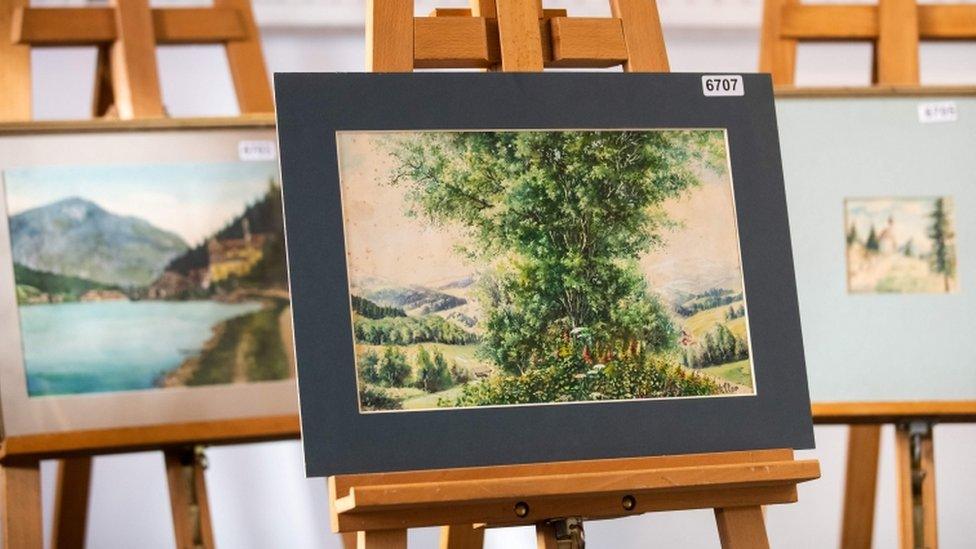
The auction house had been hit with accusations they were selling fakes
Five pictures said to have been painted by Nazi leader Adolf Hitler have failed to sell at auction in Germany.
Weidler auction house hoped to raise €45,000 (£40,000; $51,000) from the most expensive work.
The auction was held in Nuremberg, the German city once notorious for Hitler's mass rallies where leading Nazis were later tried for war crimes.
Accusations of forgery marred the auction and city mayor Ulrich Maly described it as being in "bad taste".
The sale also included items said to have been owned by the dictator, including a vase and a wicker chair with a swastika on its arm.
Under Hitler's rule (1933-45), Nazi Germany began World War Two, pursuing a genocidal policy that resulted in the deaths of some six million Jews, and tens of millions of other civilians and combatants.
Public displays of Nazi symbols are against the law in Germany - except in some contexts, such as for educational or historical reasons.
The auction house got around the law by pixelating the symbols within their catalogue.
What problems did the auction face?
Dozens of artworks, including some set for sale, were seized from the auction house last week by German police.
Prosecutors said a total of 63 items bearing the signatures "AH" or "A Hitler" were confiscated over forgery concerns.
An investigation was opened into unidentified individuals "on suspicion of falsifying documents and attempted fraud", Nuremberg-Fuerth chief prosecutor Antje Gabriels-Gorsolke told AFP.
She confirmed the auction house had co-operated and handed the works over voluntarily.
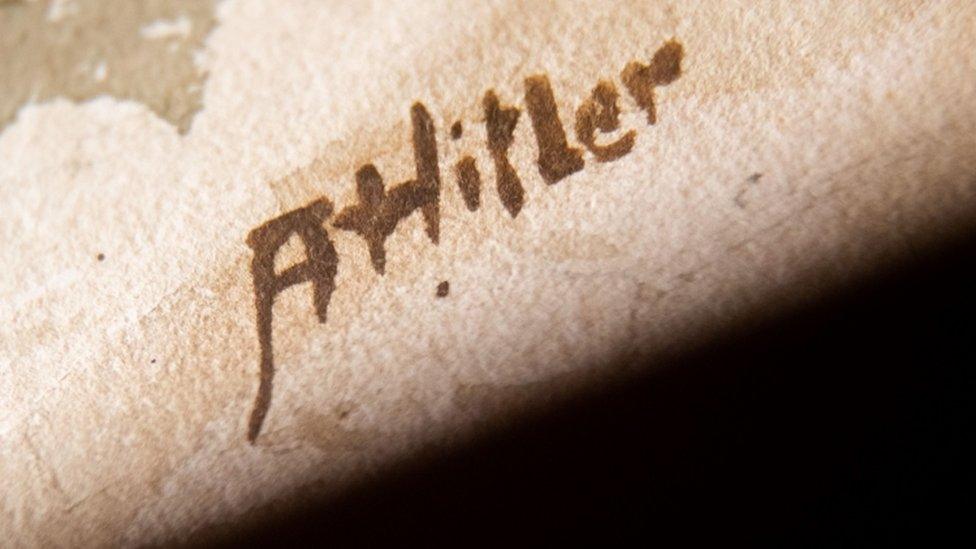
The five paintings that remained on sale failed to spark interest
Sales of paintings purporting to be from the dictator regularly generate controversy and accusations of forgery.
Last month German police seized a collection due to go on sale in Berlin over concerns over their authenticity.
Hitler, who was twice rejected by the Vienna Academy of Fine Arts, is known to have sold his artwork in his youth.
Dozens of works attributed to him, which were regarded by art experts as being of poor quality, have been sold over the years.
In 2015, Weidler auction house sold more than a dozen paintings attributed to Hitler for almost €400,000.
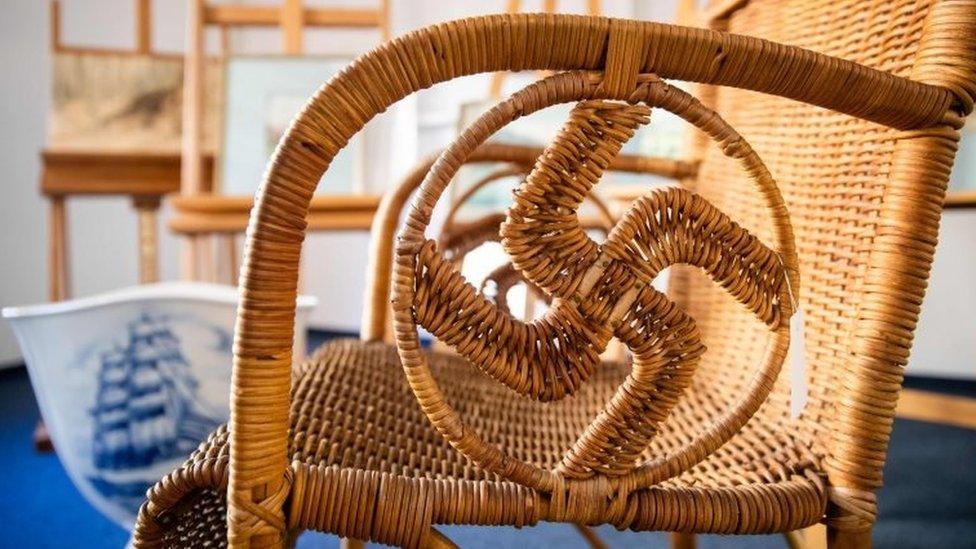
A Swastika wicker chair said to have belonged to Hitler also failed to sell at the auction
Bidders then reportedly came from Germany, China, France, Brazil and the United Arab Emirates.
In 2014 the auction house sold a Hitler watercolour of Munich's city hall for €130,000.
The sale of Nazi memorabilia remains a divisive topic around the world.
Some buyers say it is for historical reasons, but campaign groups warn items are also purchased by far-right group members who idealise the regime.
Last year, some UK-based groups lobbied online retailers to better regulate Nazi memorabilia sales.
- Published24 January 2019
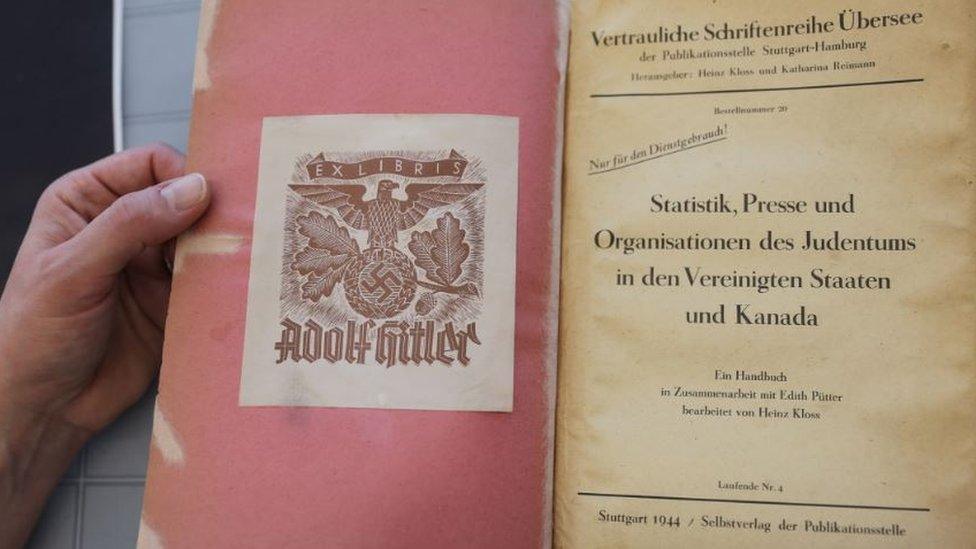
- Published24 January 2019

- Published13 November 2018
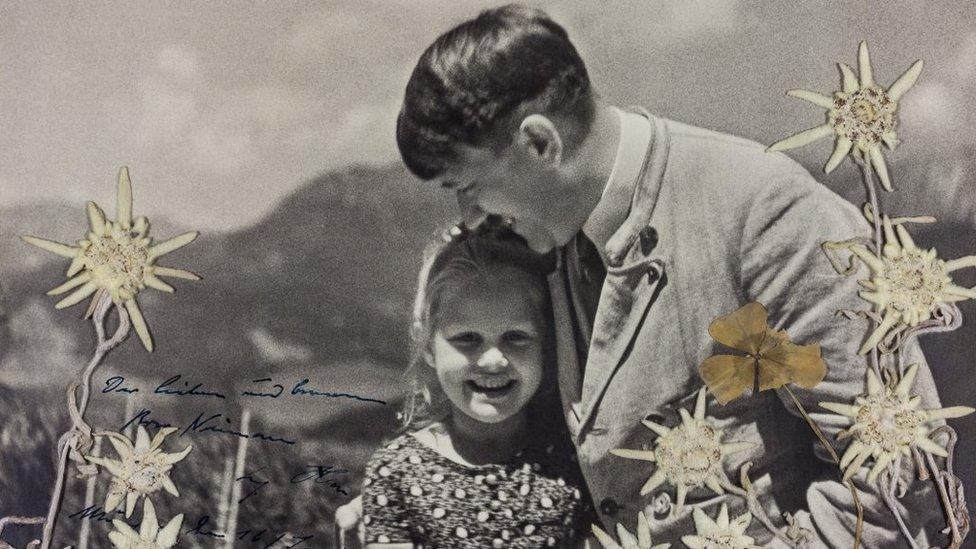
- Published22 June 2018
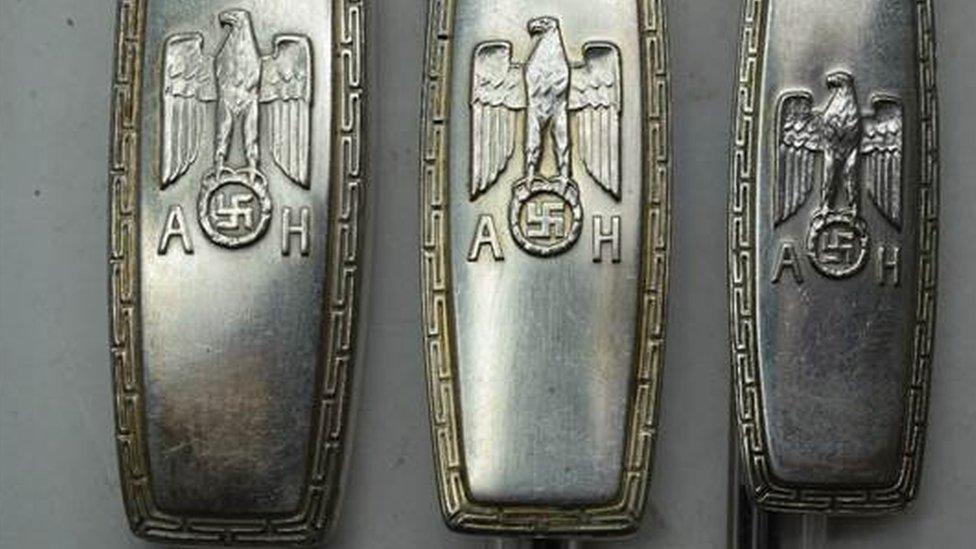
- Published20 May 2018

- Published20 April 2018
